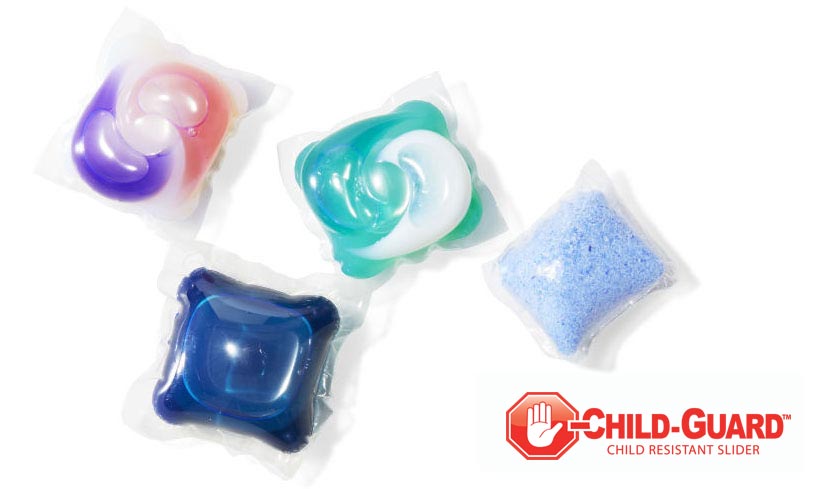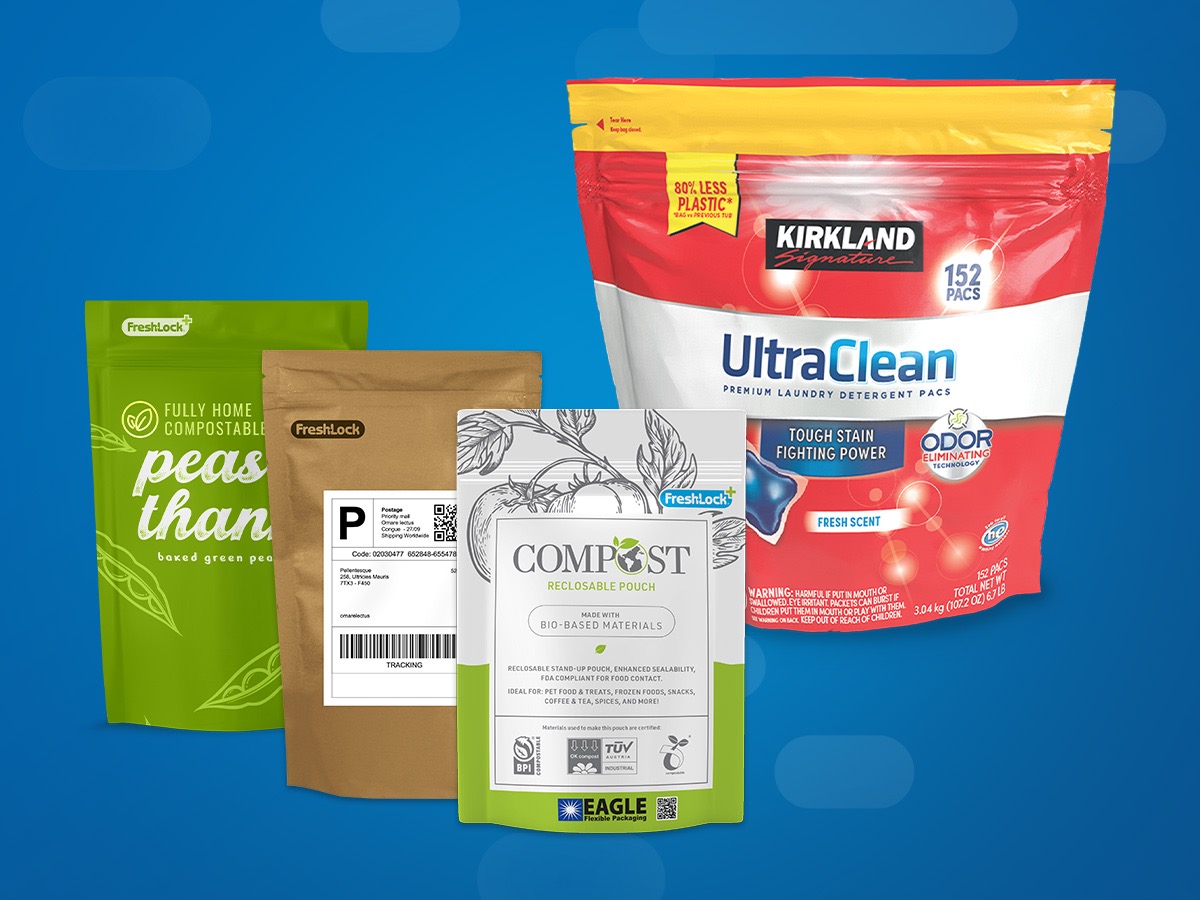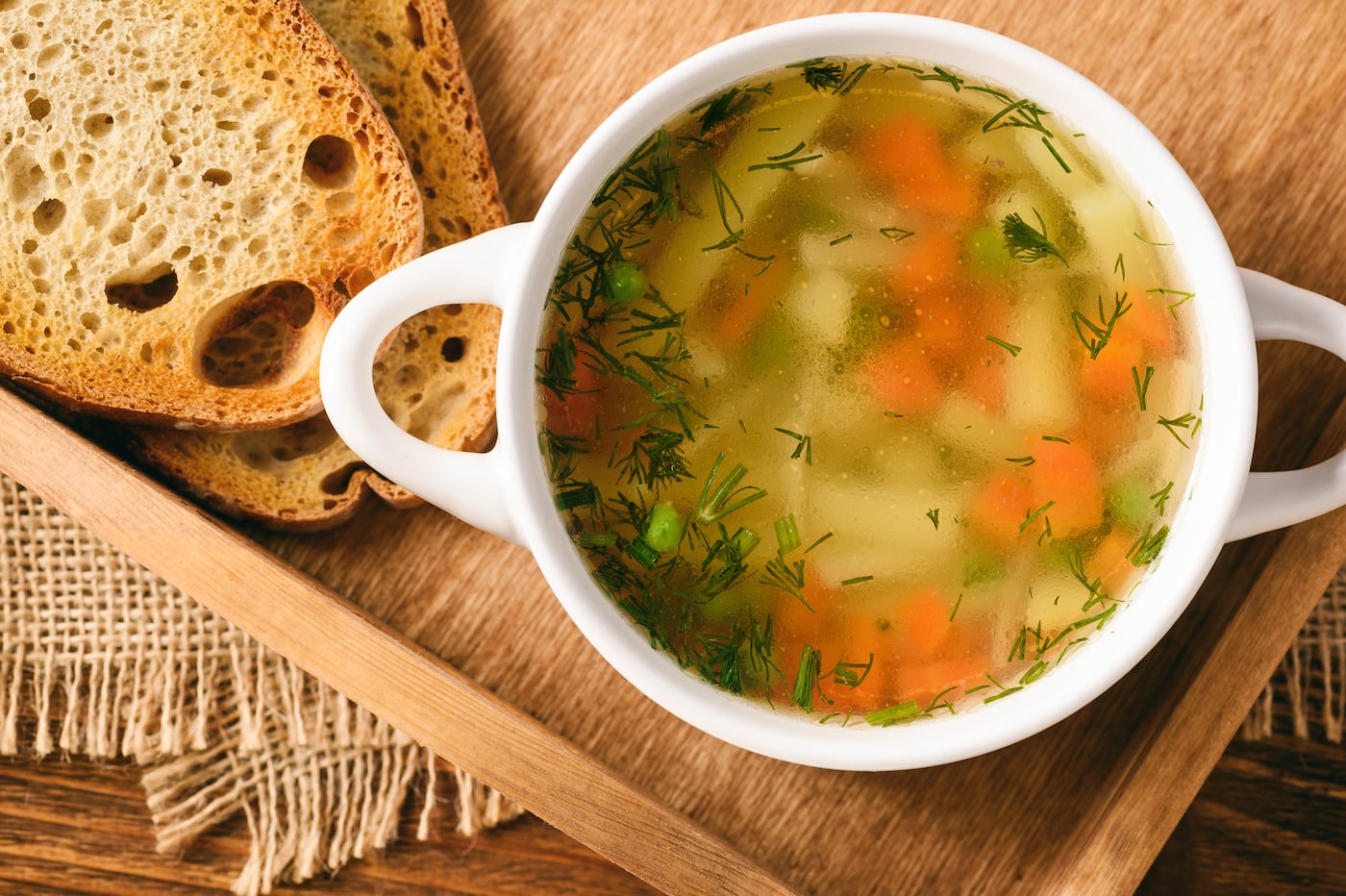
What is Being Done to Protect Your Kids from Accidental Laundry Packet Poisonings?
Every home contains products made with potentially harmful ingredients like dangerous chemicals and poisonous toxins. At the same time, all young children have curious minds with mischievous hands that head straight for their little mouths. It’s impossible to watch your kids all the time. However, companies making products like household cleaners and over-the-counter medications can and should take steps to keep little ones safe from accidental poisoning. One particular type of household product that’s received a lot of attention in recent years is the laundry detergent packet. You may be more familiar with the branded name of “laundry pods.” The technical name for this type of product is an SUD, or soluble unit dose. SUDs provide a lot of convenience to modern homeowners by making laundry day simpler. The problem is that young children, typically under the age of five, see the colorful packets wrapped in plastic and think they could be candy. Exposure to the concentrated detergent inside can cause nausea and vomiting, breathing difficulty, and chemical burns. In two cases, children have died. The alarming rate of exposures caused a spike in calls to Poison Control Centers around the country. As you can see in the graph below, calls about laundry packet exposure among U.S. children have increased for the past four years. While there have been efforts to raise awareness about the dangers, the use of laundry SUDs continues to grow, which has led to more exposures.
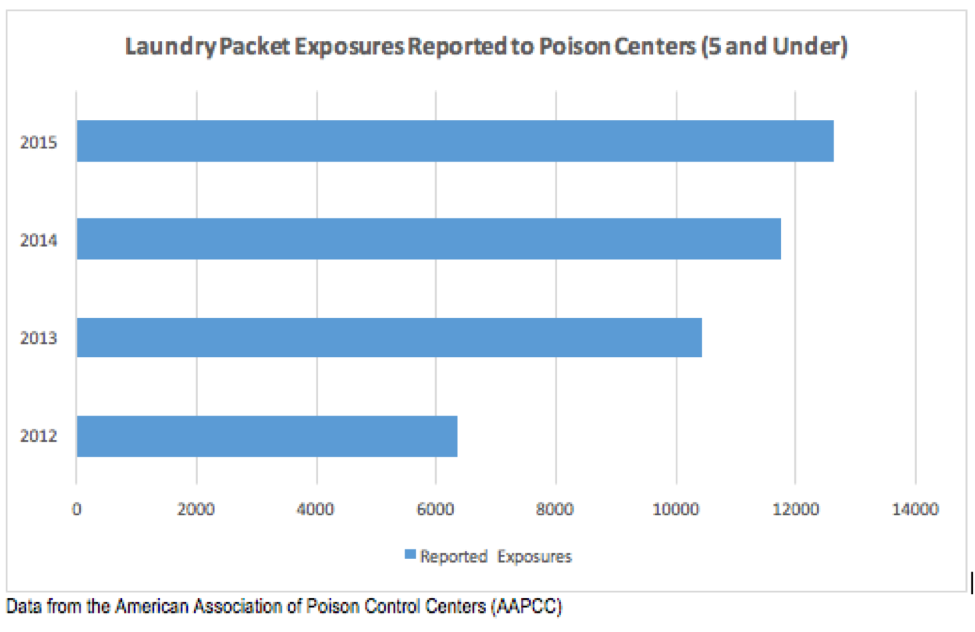
Thankfully, consumer advocacy groups, responsible companies, and leaders in packaging innovation are taking steps to make laundry packets safer for homes with young children. In 2015, the U.S. Consumer Product Safety Commission (CPSC) contacted the global standardization organization, ASTM International, asking it to held lead a subcommittee to develop recommendations for keeping children away from potentially harmful SUDs. The group, which included the CPSC, industry experts, manufacturers, safety advocates, and others came up with a list of five voluntary standards. Let’s take a look at what they are and how they may or may not help keep children safe.
5 Voluntary Standards for Packaging and Labeling
The ultimate goal of these recommended standards is to significantly reduce the number of pediatric exposures from laundry detergent SUDs. Keep in mind that these standards are voluntary, and there is no mandate to follow them. The subcommittee that came up with these standards is also determining an appropriate reduction of incidents and whether the standards should be revised. 1. Add an agent to the outer film with a “repulsive taste.” The belief here is that if a child puts an SUD in her mouth, she’ll be turned off by a bitter taste on the plastic film containing the detergent, and so she’d immediately take it out. However, the effectiveness of this tactic is questioned by some consumer advocates. One reason is because the film surrounding laundry packets is formulated to dissolve in water, and a child’s saliva does the same thing. If you’ve ever handled an SUD with wet hands, you may have noticed the film starting to dissolve on your fingers. Stories about children exposed to detergent SUDs reflect the fact that exposure happens very quickly – often within a matter of seconds. 2. Make laundry packets more difficult to bite through. A bitter-tasting film does not prevent a child from biting through it. That’s why another recommendation is to make the film tougher. This might give a parent more time to notice a toddler with a laundry packet in her mouth and take it away before she is exposed to the detergent. However, it does nothing to keep a child away from the product. 3. Stop using transparent packaging. Laundry detergent SUDs are attractively designed. In the beginning, the eye-catching colors were an excellent way to grab a shopper’s attention in the grocery store. Unfortunately, adults weren’t the only ones who noticed. The ASTM has suggested brands no longer use see-through containers on laundry packets. This might make it less likely a child would be attracted to dangerous products that look like candy. 4. Add new warning statements and safety symbols. Brands are also being encouraged to increase warning labels and provide safety symbols indicating the products should be kept away from children and may cause harm if exposure occurs. This is a smart move, with one big exception. Children five and under make up the vast majority of poisonings from laundry SUDs, but most of those children are not yet able to read. Plus, can you imagine a two-year-old taking notice of a safety symbol on a package? This labeling is more of a reminder to parents. 5. Create packaging requiring more skill to open. Improving the packaging to keep your kids from ever getting their little hands on laundry packets is probably the best strategy of all. One challenge is that many SUDs are sold in a form of flexible packaging known as a standup pouch. This type of package usually has a zipper that makes it resealable. What if that zipper was more difficult for young children to open? We’re all familiar with the child-resistant caps on bottles of medicine. What if there was something similar for flexible packaging? That’s exactly what Presto® has created with its innovative Slide-Right® Child-Guard® slider. This closure has been tested for its ability to deter children five and under from opening a package. While no type of packaging is completely “child proof,” more than 90% of children who participated in testing were unable to open the Child-Guard® closure.
How Child-Guard® Slider Technology Works
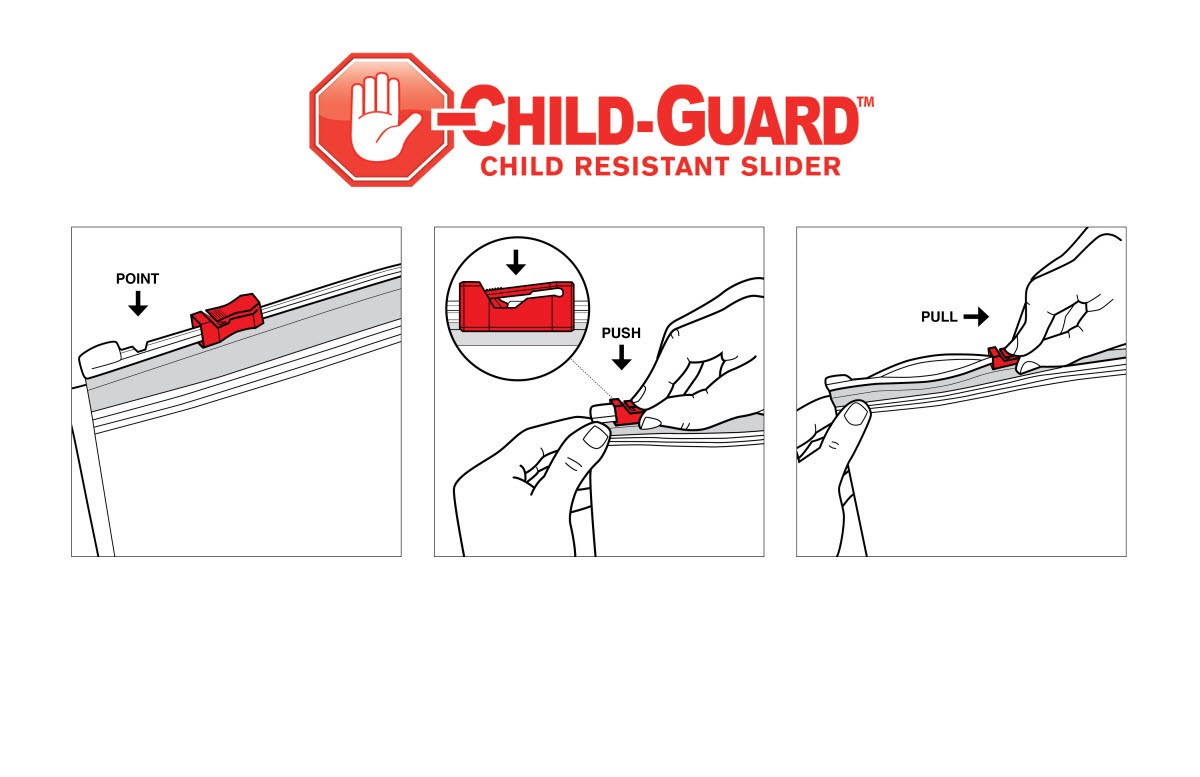
To avoid consumer frustration, packaging engineers at Presto designed Child-Guard® to be unchallenging for adults, senior citizens, and people with disabilities to open. Once you’ve tried it a few times, it’s easy to get the hang of it. Sometimes the simplest ideas are the most revolutionary. The people at Presto® believe Child-Guard® is just as important to household safety as child-resistant caps were in the 1970s.
What Parents and Caretakers Like You Can Do
Moms and dads still have a responsibility to keep their kids safe. Child-Guard® only works when an adult remembers to close and lock the packages containing laundry packets. You can also vote with your wallet. When national brands know consumers like you see value in packaging that’s safer for children, competing brands will follow. Another step caretakers can make is to contact their favorite brands and ask for Child-Guard® to help keep your kids safe. Look for contact information on product packaging or visit the brand’s website.

 Back to Blog
Back to Blog